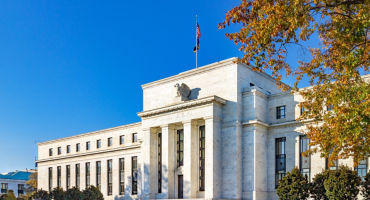- Geopolitical Strategist
Skip to main content
- Funds
- Insights
- Capabilities
- About Us
- My Account
United States, Intermediary
Changechevron_rightThe views expressed are those of the author at the time of writing. Other teams may hold different views and make different investment decisions. The value of your investment may become worth more or less than at the time of original investment. While any third-party data used is considered reliable, its accuracy is not guaranteed. For professional, institutional, or accredited investors only.
Risks are now clearly elevated, but I think it’s unlikely this single attack by Iran, and Israel’s limited response thus far, spreads immediately to a wider regional conflict. Iran’s actions were well telegraphed, and the relatively minor impact has allowed Israel to temper its immediate response while the US and other regional players intensify diplomacy in the background. Statements from both Tehran and the US indicate that further escalation is not desired; though, of course, Israel’s government will have a final say.
While I see incentives for all sides to “manage through this,” the number of complex variables in play across the region could credibly trigger a significant geopolitical event over the next several weeks. To name a few, these include:
The risk here is an escalation cycle that neither side can effectively curtail. From a markets perspective, the key takeaway is that we have moved one step closer to the worst-case scenario of a direct and widening Iran/Israel war that brings in the US and sparks significant energy, inflation, and central bank policy implications.
The ongoing leadership transition in Iran means there’s a lot of behind-the-scenes maneuvering in Tehran, and therefore, less scope for Iranian leaders to look the other way if this continues to escalate.
There continues to be a real desire by some inside the Netanyahu government to address the Iran threat “once and for all.” In this line of thinking, the events of October 7 offer hardliners an unprecedented opportunity to deal a significant blow first to Hamas (a work in progress), second to Hezbollah (arrows continue to point lower here), and finally, to Iran, especially with the existential risk of Iran’s nuclear issue hovering in the background. These attacks will intensify this hawkish position.
Thus far, the Biden administration has been mostly successful in deterring these hardline approaches (including the latest developments), but that gets harder every day.
Great-power competition dynamics are running through all of this — especially with Iran as a key supplier of drones to Russia’s Ukraine war effort, and China such a critical economic and energy partner to Tehran, to say nothing of US relationships with Israel and other regional actors.
Policymakers will use these attacks as yet another data point that underscores how we’re now living through the most complex, dangerous, and unpredictable geopolitical environment in decades. This will reinforce a policy direction that favors security writ large, as well as the continuing protection and promotion of sectors deemed strategic in this deepening and increasingly global national security competition.
Expert

Venture capital outlook for 2025: 5 key trends
Continue readingMultiple authors
What's current in credit: November 2024
Continue readingChart in Focus: Is the “Trump trade” real?
Continue readingMultiple authors
Fed stays its course while acknowledging brewing winds of change
Continue readingTrump 2.0: US election market impacts
Continue readingIt’s different this time: Trump faces challenging geopolitical dynamics
Continue readingBy
URL References
Related Insights
Stay up to date with the latest market insights and our point of view.
You've been subscribed
Thank you for subscribing. You can manage your subscription using the links provided in any of our subscription emails.

Venture capital outlook for 2025: 5 key trends
Our venture capital experts are encouraged by the healthier environment for venture capital in 2025. In this year's outlook, they explore key themes for the year ahead, including: higher deployment, AI, rebounding IPOs, and impacts of the 2024 election.
Multiple authors

What's current in credit: November 2024
Connor Fitzgerald explores the impact of President Trump’s US election victory on credit markets. Where are the opportunities and risks for credit investors now?

Chart in Focus: Is the “Trump trade” real?
Is this "Trump trade" real?In this latest edition of Chart in Focus, we compare market's reactions to Trump's re-election and his 2016 election, and share our observations.
Multiple authors

Markets in 2025: asleep at the wheel or in the driving seat?
Watch the conversation with Head of Macro Strategy John Butler as he discusses recent macro events and potential 2025 market outcomes for investors.

Fed stays its course while acknowledging brewing winds of change
Our expert examines the underlying data which drove the Fed to stay its rate-cutting course.

Trump 2.0: US election market impacts
In the wake of the US election, macro strategists Juhi Dhawan and Michael Medeiros join host Thomas Mucha to discuss the market, policy, and geopolitical implications of Trump 2.0.

It’s different this time: Trump faces challenging geopolitical dynamics
Our expert explores how Trump may approach the heightened geopolitical challenges his second administration faces.
By

What do the US election results mean for investors?
The US election results could have significant implications for the global economy and capital markets. Our panel of experts provides a thorough analysis of what happened and explores potential market impacts.
Multiple authors

Trump win likely to accelerate macro trends already in motion
The US election results could have significant implications for the global economy and markets. To help you understand these changes, US Macro Strategist Mike Medeiros provides a thorough analysis and discusses the potential market impacts.

Pre-election ideas for investors: Lean into what you know (not what you don’t)
Our expert offers investable ideas based on known macro and market conditions, rather than speculation.
Multiple authors

US election special: which investment themes win at the polls?
The upcoming US election could be one of the most momentous in recent history. How could the result affect different investment themes? Our thematic team investigate the potential implications for investors.
Multiple authors
URL References
Related Insights
© Copyright 2024 Wellington Management Company LLP. All rights reserved. WELLINGTON MANAGEMENT ® is a registered service mark of Wellington Group Holdings LLP. For institutional or professional investors only.
Markets in 2025: asleep at the wheel or in the driving seat?
Continue readingBy
John Butler
Will Lockhart